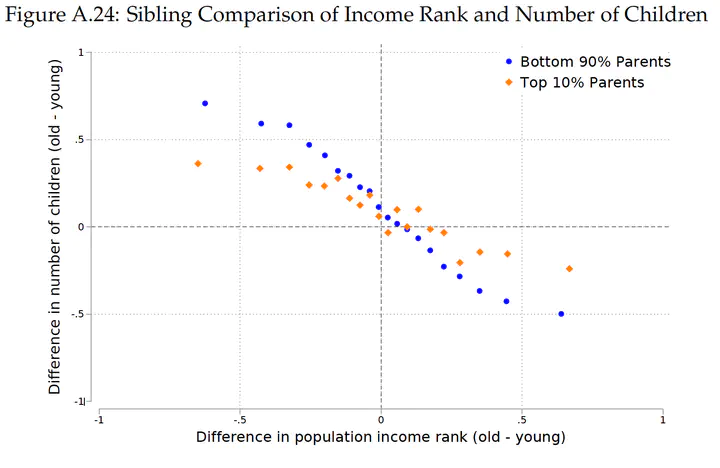Who Can Have It All? The Invisible Cost of Upward Mobility

Abstract: The standard definition of intergenerational mobility—correlation of outcomes across generations—ignores the costs of achieving these outcomes. We show that cost dependence on parental background creates a gap between outcome and welfare mobility. In our theoretical model, agents spend their time at work or with their families. The cost of a career is thus the option value of time due to a career-family tradeoff. We show that if the tradeoff is more severe for those from disadvantaged backgrounds, income mobility overestimates welfare mobility. Empirically, Swedish administrative data shows that, indeed, to reach higher income, individuals with low-income parents sacrifice more of their family life. They have fewer children and spend less time with them than those with high-income parents. The mechanism is hard-earned vs. guided success: To reach high income, those from lower-income backgrounds typically study longer but in less lucrative fields, possess higher cognitive and non-cognitive skills, and start their careers later at lower-paying firms but more frequently change jobs and make larger leaps on the job ladder.